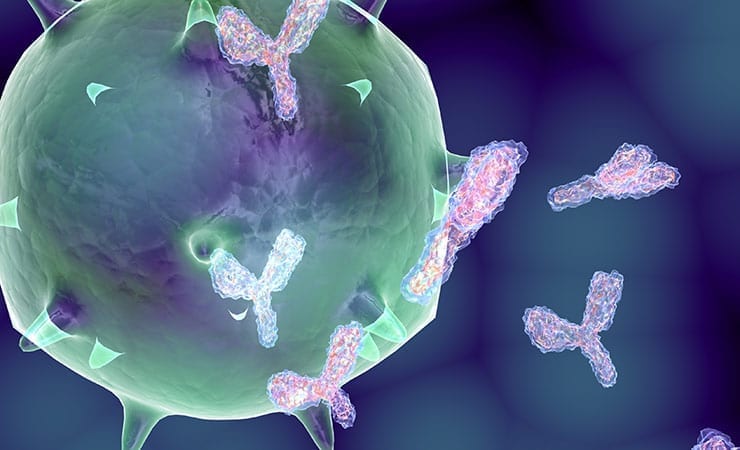iBio, Inc. today announced the issue of a US patent for “Compositions and Methods for Production of Immunoglobulins.”
Claims involve human monoclonal antibodies specifically recognizing the Protective Antigen (PA) or the Lethal Factor (LF) of Bacillus anthracis, the bacteria causing anthrax.
In mouse and non-human primate studies such antibodies, produced with the use of iBio’s iBioLaunch gene expression platform technology, prevented death in 100% of animals given an otherwise lethal doses of anthrax spores.
iBio has previously been issued similar patents in China, India, Korea and Europe.
“This technology continues the expansion of iBio’s antibody portfolio and broadens our patent protection for product candidates addressing anthrax, both for natural outbreaks and for possible biodefense considerations,” said Wayne P. Fitzmaurice Ph.D., iBio’s Vice President, Intellectual Property. “These monoclonal antibodies will complement our vaccine technology such as is described in our U.S. patent 8,277,816 covering compositions of matter and methods of producing and formulating anthrax vaccines.”
“A non-glycosylated version of this antibody binds PA, neutralizes anthrax LeTx activity in vitroand possesses superior efficacy compared with the glycosylated form of this antibody in non-human primates – a significantly longer half-life and 100% protection against a lethal dose of aerosolized anthrax spore challenge after a single i.v. administration,” said Terence Ryan, Ph.D., Chief Scientific Officer of iBio. “These results suggest that this monoclonal antibody may be a useful tool for the treatment of inhalation anthrax in humans.”
In addition to its proprietary fibrosis therapeutic program and the production of monoclonal antibody candidates, iBio is exploring the commercialization of its iBioLaunch gene expression platform technology for viral and bacterial infectious disease applications through collaborations with third parties.
The company’s technology has been successfully applied to the development of an anthrax vaccine candidate, and a Phase 1 clinical trial of the safety and immunogenicity of this experimental vaccine, produced at the Fraunhofer USA Center for Molecular Biotechnology under a research license from iBio, is being conducted at Walter Reed Army Institute of Research.



